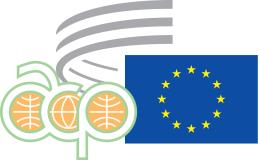European Economic
and Social Committee
Africa, Caribbean, Pacific (ACP)
From the first Lomé Convention (1975) to the Cotonou agreement (2000-2021), EU-ACP Parterships have governed the relations between the EU and 79 countries of the African, Caribbean and Pacific Group of States (ACP), which recently became the Organisation of the African, Caribbean and Pacific States (OACPS).
Throughout this period the EESC, together with ACP civil society, fought for recognition of the essential role played by non-state operators in the development process until this was achieved in the Cotonou Agreement, which mandated the EESC to organise activities and consultations with "ACP-EU economic and social interest groups" in order to gather the views of, and give voice to the organised civil society. The aim has been to foster exchanges and provide recommendations on issues and policies relevant to ACP-EU relations, later officially addressed to the EU and ACP leaders.
In practical terms, the EESC's activities concerning EU-OACPS relations are mainly carried out under the guidance of an inclusive ACP-EU Follow-up Committee made of EESC members and delegates representing ACP economic and social interest groups.
The ACP-EU Follow-up Committee maintains regular contacts with the representatives of civil society in the ACP countries at different levels, through:
- Regular meetings of the ACP-EU Follow-Up Committee,
- Regional Seminars in ACP countries, providing a forum for discussing topics of common interest with civil society representatives in alternating regions,
- Triennial General Meetings of ACP-EU economic and social interest groups in Brussels.
The EESC also maintains regular contacts with the African Union's representatives of economic and social interest groups, in the framework of the Joint EU-Africa strategy. In particular, the EESC holds annual meetings with the Africa-EU Economic and Social Stakeholder's network.
The EESC has for many years kept up regular contact with the ACP-EU Joint Parliamentary Assembly, presenting a report on its activities at sessions of the Plenary Assembly.
The EESC is likewise in close contact with international employers', workers', farmers', cooperatives' and consumers' organisations. These organisations nominate the ACP representatives invited to the meetings held by the EESC, including the ACP-EU Follow-up Committee.
